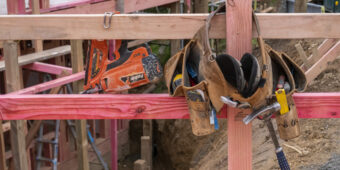Know your boundaries!
31 May 2017, Legal, Prove Your Know How

This month we look at what builders’ legal obligations are in relation to residential fencing, what the consequences are of non-compliance and some key points to take home
FFencing disputes between neighbours are common and normally arise in relation to the cost, repair and location of fences. Fencing requirements between neighbours, and how to resolve disputes, are primarily governed by the Fencing Act 1978.
Additionally, a builder must meet their legal requirements under the Building Act 2004 when they have entered into a contract to build a fence for an owner. This is on the basis that building a fence constitutes ‘building work’ under the Building Act 2004 and such a contract to build a fence would result in a ‘residential building contract’.
Builders’ legal obligations include the following:
1. Before entering into the contract
Providing disclosure information and a checklist.
- If a client requests, or the fence costs $30,000 or more, a builder must provide their client with disclosure information and a checklist before entering into the contract.
- Disclosure information will provide information to a client about the builder. A checklist will provide guidance to a client on what matters he/she should take into consideration when entering into the contract to build the fence.
2. Form and content of a residential building contract:
- If the fence costs $30,000 or more, the contract to build the fence must be in writing, dated and comply with any regulations made under the Building Act 2004.
3. During the contract
The builder warrants to the client that:
- The building work will be carried out in a proper and competent manner, and in accordance with any requirements set out in the contract and any building consents.
- The materials supplied for the building work will be fit for purpose and, unless otherwise stated, new.
- The building work will comply with all legal requirements.
- The building work will be carried out with reasonable care and skill and completed by the date specified. If no date is specified, the building work must be carried out within a reasonable time frame.
- The building work will be reasonably fit for its intended purpose of a fence.
4. After the contract is completed
Once the fence is built, the builder must provide certain information and documentation in writing to the client:
- The purpose of this information is to ensure that the owner and future owners of the fence have knowledge of ongoing maintenance requirements and who carried out the building work.
- This information may include information on insurance, maintenance and guarantees.
If the building work carried out on the fence is defective and able to be remedied, the builder must remedy the defect if the client notifies them within 12 months from the completion of the building work.
Consequences of Non-Compliance with Legal Obligations
The consequences of a builder failing to comply with the legal requirements above are wide ranging and may include liability for offences, damages
or compensation.
5. Offences
Failing to comply with any of the below are considered offences under the Building Act 2004:
- The content and form requirements of the residential building contract (ie, enters into an unwritten contract, where it must be written).
- The requirement to provide disclosure information and a checklist, before the residential contract is entered into.
- The requirement to provide certain information and documentation, after the residential contract is completed.
Where a builder has failed to comply with these requirements and commits an offence, he/she will be liable to a fine not exceeding $2,000.
6. Damages and/or compensation:
Where a builder has breached any warranty owed to a client, the client may require the builder to remedy the breach (ie, repairing the work or replacing defective materials).
If the builder refuses to, or neglects to do so within a reasonable period, a client may claim costs for someone else to complete the repair work or cancel the contract. If the breach of the warranty cannot be remedied or is substantial, the client may receive compensation for the reduction in value or cancel the contract.
Despite receiving remedies for a breach of warranty or defect, a client may in some circumstances still be entitled to claim damages for loss or damage resulting from the defect or breach of warranty.
Further things to note
- A building consent is required for a fence exceeding 2.5 metres in height.
- A builder must still ensure the building work in relation to the fence complies with the Building Code’s requirements and any regulations, to the extent required by the Building Act 2004.
- A person’s rights under the Fair Trading Act 1986 or Consumer Guarantees Act 1993 are not affected by a residential building contract.
Getting to the Point
Contracting to build a residential fence will constitute a residential building contract under the Building Act 2004. As such, a builder will owe a number of legal obligations.
This is important to remember, as these obligations and requirements are far reaching and can have wide-ranging consequences in the event of
non-compliance.
Before contracting to build a fence for someone, ensure you are clear about the requirements and obligations owed. Being clear on these from the outset will help avoid potential non-compliance down the track.
If you are ever unsure about your obligations and legal requirements when contracting to build someone a fence, or worried that you may have failed to comply with the requirements, get legal advice from a professional. This could save time and costs later.
The author of this article, Rebecca Holt, is a solicitor in the litigation team at Saunders Robinson Brown. She advises clients on broad litigation matters, including disputes between builders and owners, and can be contacted on 03 377 4470 or rebecca.holt@srblaw.co.nz.
Register to earn LBP Points Sign in
2 Comments
Leave a Reply
You must be logged in to post a comment.




Graet quiz
2.5 mtrs